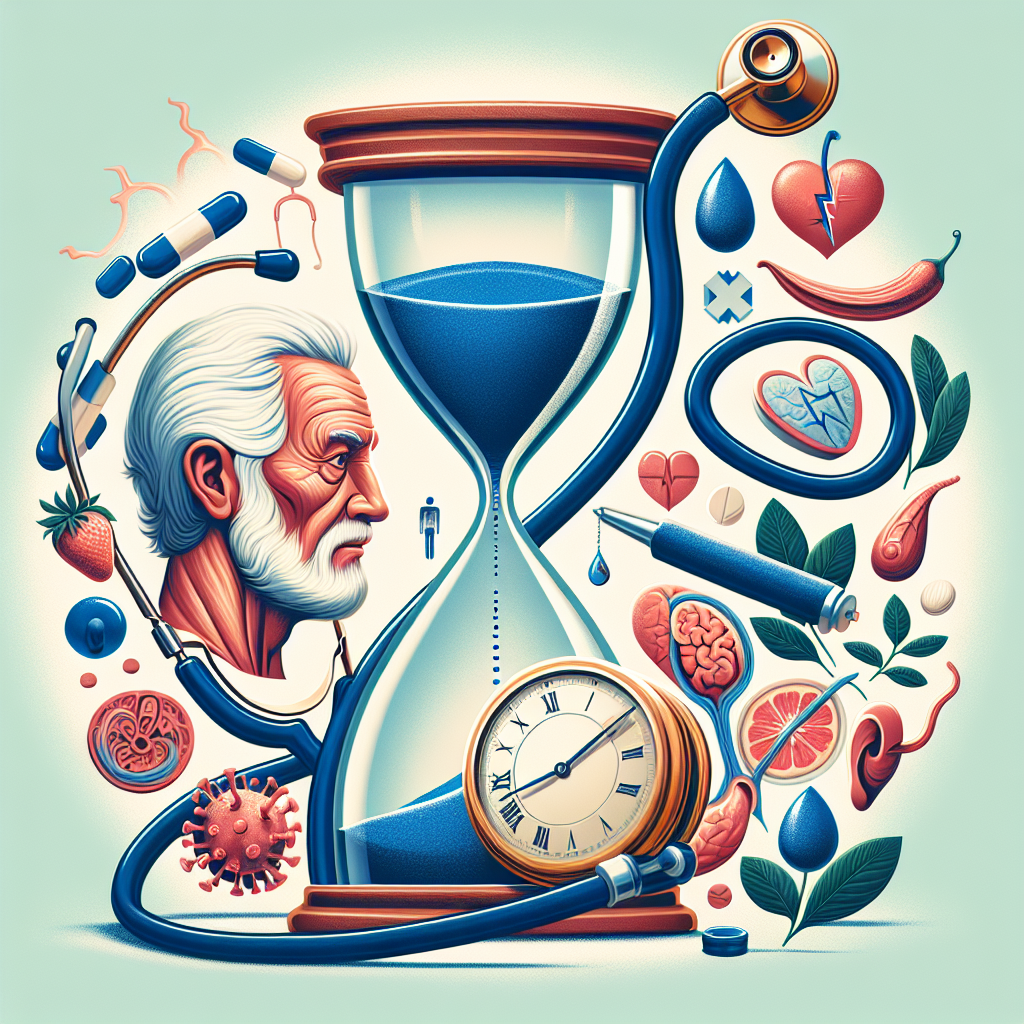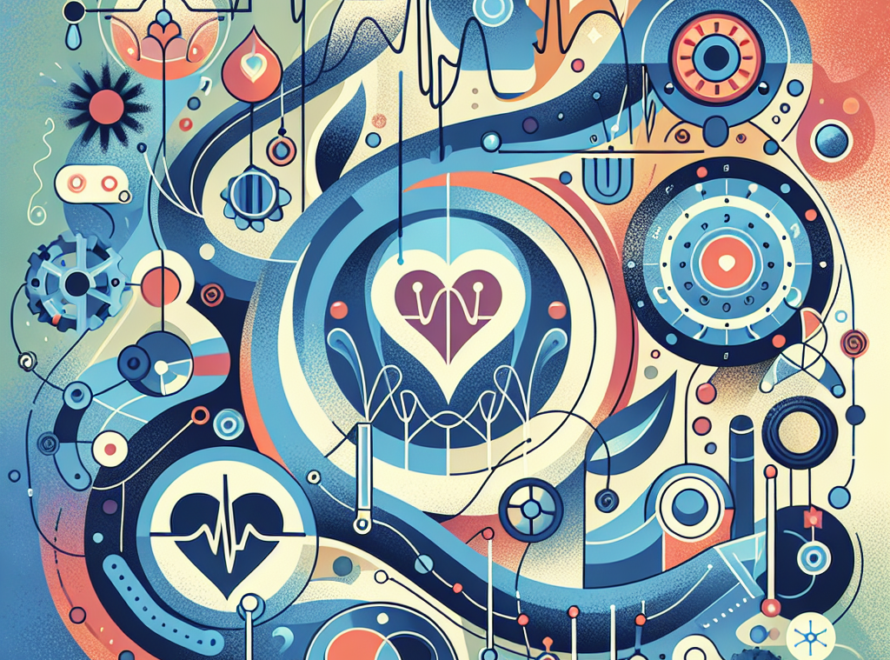Understanding Erectile Dysfunction After 50: What’s Truly Normal?
Erectile dysfunction (ED) becomes more common as men age, but it’s often misunderstood. Many assume it’s just a normal part of getting older. The truth is, while aging can affect sexual function, that doesn’t mean ED is inevitable or permanent. In the majority of cases, ED has clear underlying causes—and, importantly, treatable solutions.
According to the Massachusetts Male Aging Study, approximately 52% of men aged 40 to 70 report some degree of ED. While the frequency increases with age, many causes are linked to treatable health conditions, not aging itself.
Dr. Michael Eisenberg, a urologist at Stanford Medicine, notes, “ED is not an automatic consequence of aging—it’s often a signal of cardiovascular or metabolic disease.” Understanding the difference between age-related changes and medical concerns can improve more than just your sex life—it can impact your overall health.
What Is ED and What Causes It?
Erectile dysfunction is defined as the ongoing inability to achieve or maintain an erection firm enough for sexual activity. While every man may occasionally experience issues due to fatigue or stress, persistent problems could signal ED.
Common physical causes include:
– Cardiovascular disease
– High blood pressure
– High cholesterol
– Type 2 diabetes
– Obesity
– Low testosterone
– Smoking
– Excessive alcohol use
– Certain medications (such as antidepressants or blood pressure drugs)
Psychological causes may involve:
– Chronic stress
– Anxiety or performance anxiety
– Depression
– Relationship problems
After age 50, the likelihood of developing these issues rises. Conditions like diabetes and heart disease, which affect blood circulation, are particularly common. Still, ED is not simply the result of aging—it’s often the first sign of an underlying condition that requires attention.
You’re Not Alone: A Common Example
Take the case of a 56-year-old man who begins experiencing consistent difficulty maintaining an erection. A medical checkup reveals early signs of cardiovascular disease. Addressing the ED not only improves his sex life, but may also prevent serious future health events, like a heart attack.
If you’re wondering whether your ED is age-related or a medical concern, the next section explains the difference clearly.
Normal Aging vs. Medical Concern: Know the Difference
As men age, some biological changes are expected, such as:
– Slower blood flow
– Gradual testosterone decrease
– Reduced nerve sensitivity
These changes may mildly impact libido or delay arousal, but they rarely cause complete erectile failure.
ED becomes problematic—and likely medically significant—when:
– Erections become consistently weak or nonexistent
– Sexual confidence starts to waver
– Libido drops suddenly
According to the Cleveland Clinic, regular ED often indicates poor blood flow or nerve damage. These are not simply symptoms of aging—they’re signs of potential medical conditions like vascular disease. Since the blood vessels in the penis are smaller than others in the body, ED may be the earliest warning sign of trouble ahead.
Why a Doctor’s Visit Matters After Age 50
If you’re over 50 and facing erectile issues, it’s important not to ignore them. A simple conversation with your healthcare provider can uncover the cause and help you begin treatment.
What to expect during evaluation:
– Blood tests to check testosterone, cholesterol, and glucose levels
– Blood pressure and heart health screening
– Review of medications and medical history
– Mental health and lifestyle assessment
Although it might feel uncomfortable to talk about ED, physicians consider it a crucial indicator of health. Dr. John Mulhall of Memorial Sloan Kettering emphasizes, “ED can be the canary in the coal mine. It gives doctors an early window into other serious conditions like heart disease, diabetes, or depression.”
Need guidance before scheduling a visit? edrugstore.com offers trusted ED treatment information and convenient prescription services.
Treatment Options: More Than Just Medication
When people hear “ED treatment,” medications like Viagra (sildenafil) and Cialis (tadalafil) immediately come to mind. These drugs are effective for around 70% of men by increasing blood flow to the penis.
But they’re not the only solution. Depending on the cause of ED, other treatment options can work just as well—or better.
Here are additional treatment pathways:
– Lifestyle Changes: Losing weight, quitting smoking, limiting alcohol, and exercising regularly can all enhance erectile health.
– Counseling or Therapy: If emotional stress, anxiety, or past trauma are involved, therapy can make a big difference.
– Testosterone Therapy: If blood tests show low testosterone levels, hormone replacement may improve libido and performance.
– Vacuum Erection Devices: These mechanical tools manually draw blood into the penis for an erection—no pills required.
– Penile Injections or Implants: For cases that don’t respond to other treatments, these medical options offer long-term results.
Not every solution works for every man, which is why a personalized medical approach is key. Avoid unregulated supplements, which may contain unsafe ingredients or interfere with prescribed medications.
Talk About It: Why Open Communication Helps
Struggling with ED can feel isolating, even shameful. But it’s important to remember that nearly half of all men over age 50 experience some form of sexual difficulty. You’re not alone—and you don’t have to face it in silence.
Having honest conversations with your partner can reduce performance anxiety and foster better intimacy. In many cases, couples who address ED head-on find that it actually strengthens their relationship.
Including your partner in treatment plans often leads to better outcomes, especially when making joint lifestyle changes or attending doctor visits together.
The Bottom Line: ED Is Common, Treatable, and Not Inevitable
Yes, erectile dysfunction is common after age 50—but no, it’s not just part of getting older. ED often signals broader health concerns like high blood pressure, diabetes, or hormonal imbalances.
The good news? There are many effective treatment options, from medication and therapy to medical devices and surgery. Today’s solutions are more accessible, affordable, and stigma-free than ever before.
Don’t wait. Consult your doctor, explore services like edrugstore.com, and start making small but powerful lifestyle changes.
Because sexual health is a vital part of overall wellness—and you deserve it at any stage of life.


